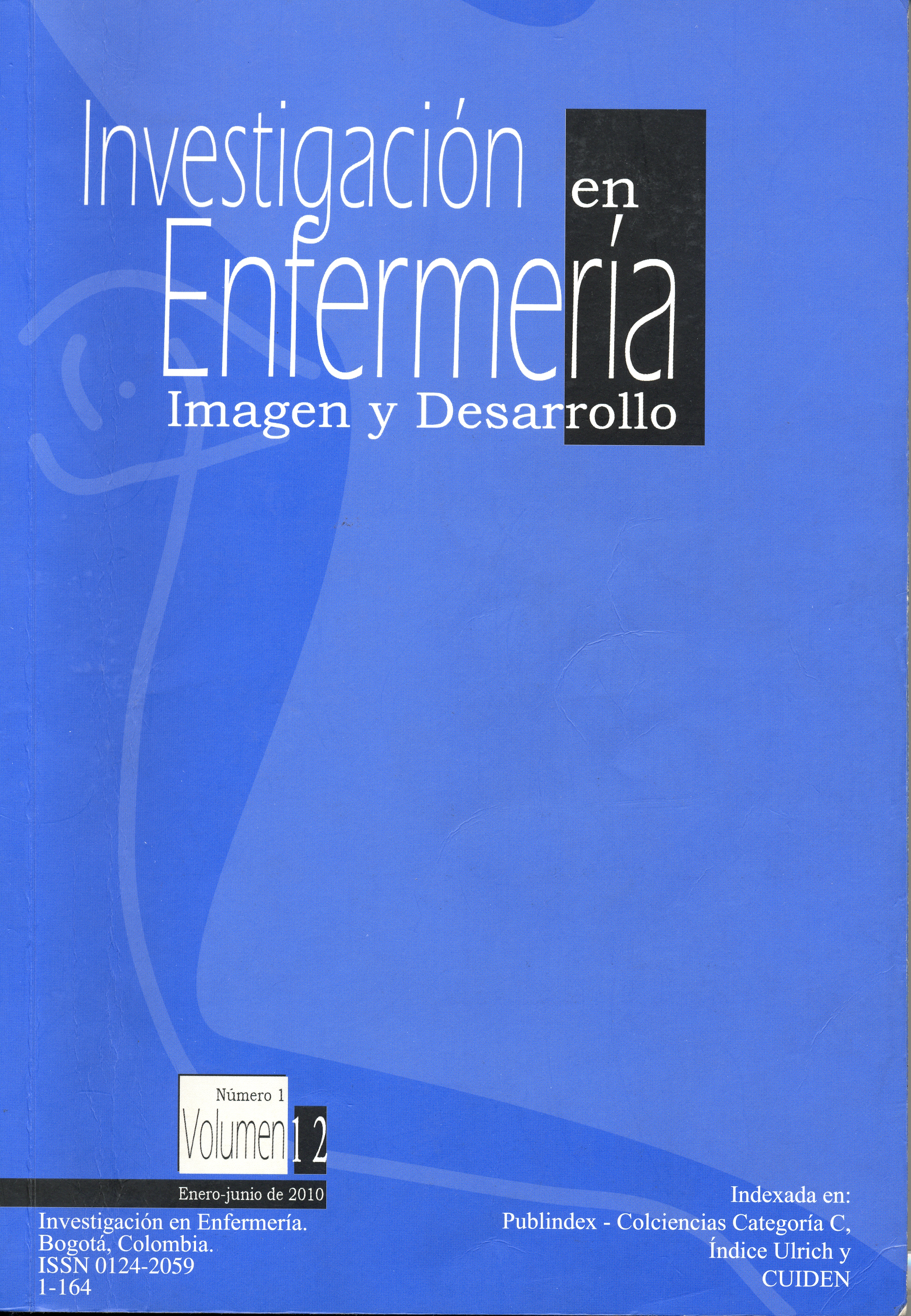Abstract
El sueño del paciente crítico debe ser considerado una necesidad de reposo, ligada claramente al confort y al bienestar de los pacientes. Lentamente se ha ido incrementando su importancia en el desarrollo de estrategias, intervenciones y líneas de investigación. En las unidades de cuidado intensivo ningún profesional puede desconocer el medio agresivo a que se expone el paciente crítico y las necesidades insatisfechas, como lo es el sueño. Con lo anterior es necesario que los profesionales de enfermería conozcan el impacto de la privación del sueño y los factores que influyen y desarrollen intervenciones dirigidas a proporcionar un cuidado integral que permita promover el sueño en el paciente crítico como un componente necesario en la recuperación física y emocional. En el artículo se describen algunos referentes de la fisiología del sueño, funciones, efectos de la privación del sueño, factores influyentes, herramientas de valoración de la calidad y cantidad del sueño y las intervenciones de enfermería.
Abstract
Sleep in critical patients must be considered as a need of resting, clearly tied to comfort and well-being of the patients; it slowly increases its importance in the development of strategies, interventions and lines of investigation. At the intensive care units any professional denies neither the agressive environment to which critical patients are exposed to, nor the dissatisfaction of needs such as the sleep itself. Giving the above points, it becomes necessary for professionals of nursing to know the impact of the privation of sleep, the factors that influence and develop interventions directed to provide an integral care that allows the dreaming in the critical patient as a necessary component in the phisycal and emotional recovery. This articles presents some theorems of the physiology of sleep will bw described, such as: Functions, effects of the privation of sleep, influential factors, tools of valuation of the quality and quantity of dreaming and the interventions of nursing.
La revista Investigación en Enfermería. Imagen y Desarrollo se encuentra registrada bajo la licencia Creative Commons Reconocimiento 4.0 Internacional. Por lo tanto, esta obra se puede reproducir, distribuir y comunicar públicamente en formato digital, siempre que se reconozca el nombre de los autores y a la Pontificia Universidad Javeriana. Se permite citar, adaptar, transformar, autoarchivar, republicar y crear a partir del material, para cualquier finalidad (incluso comercial), siempre que se reconozca adecuadamente la autoría, se proporcione un enlace a la obra original y se indique si se han realizado cambios. La Pontificia Universidad Javeriana no retiene los derechos sobre las obras publicadas y los contenidos son responsabilidad exclusiva de los autores, quienes conservan sus derechos morales, intelectuales, de privacidad y publicidad.
El aval sobre la intervención de la obra (revisión, corrección de estilo, traducción, diagramación) y su posterior divulgación se otorga mediante una licencia de uso y no a través de una cesión de derechos, lo que representa que la revista y la Pontificia Universidad Javeriana se eximen de cualquier responsabilidad que se pueda derivar de una mala práctica ética por parte de los autores. En consecuencia de la protección brindada por la licencia de uso, la revista no se encuentra en la obligación de publicar retractaciones o modificar la información ya publicada, a no ser que la errata surja del proceso de gestión editorial. La publicación de contenidos en esta revista no representa regalías para los contribuyentes.


